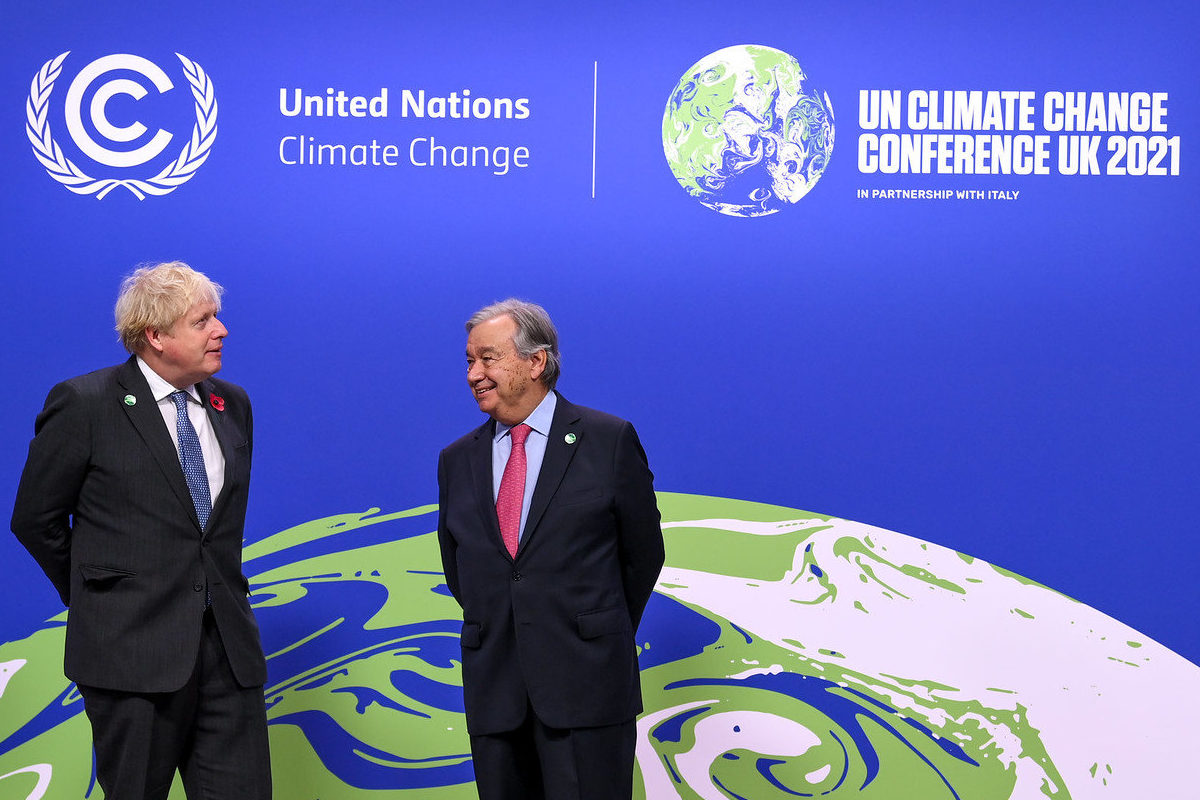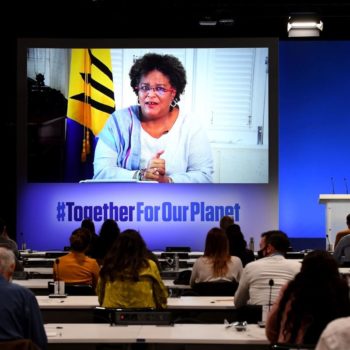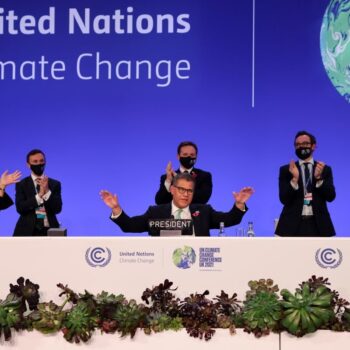COP26 ended as the gavel came down in Glasgow. But the UK COP26 Presidency has not. Until the beginning of COP27, the UK will remain at the centre of global climate diplomacy.
Continued UK climate leadership builds on the Integrated Review (a new strategy for British foreign policy) which positioned tackling climate change as the UK’s top diplomatic priority.
The challenge is immense.
Country 2030 climate action plans set out in the lead up to COP26 (NDCs) have put the world on a path to 2.4C of global heating, significantly improving on the 4C rise agreed before the Paris Agreement in 2015. But with climate change impacts already devastating communities worldwide, further and faster ambition and investment is required.
COP27 is the crunch moment. It is the UK Presidency’s responsibility, together with Egypt, to make sure countries fulfil their promises. But the question is how.
International Priorities for UK COP26 presidency
Availability and affordability of finance will determine how quickly countries deliver the climate transition, particularly as many developing countries continue to face a squeeze on their budgets given COVID-19. The UK COP26 Presidency’s central focus must be financial diplomacy:
- Targeted finance packages for ambition: The model demonstrated by UK, USA and Europe collaboration at COP26 to provide South Africa with a comprehensive, $8.5bn just transition package for coal was hailed as a success. Such financial packages for the clean transition could lay credible foundations for countries to enhance 2030 NDCs. UK COP26 Presidency convening power can establish the platforms to catalyse investment deals at pace and scale.
- Mobilising the trillions for climate transition: UK-led convening with major countries must drive significant reforms to Multilateral Development Banks (MDB) and national Development Finance Institutions (DFIs), including full alignment with Paris Goals and scaling-up leverage of private investment. Increasing MDB capital, could use Special Drawing Rights in addition to reallocating them to the International Monetary Fund’s (IMF) Sustainability and Resilience Trust. This could unlock financial firepower for joint UK, US and EU initiatives – Build Back Better World (B3W), the Clean Green Initiative and the Global Gateway – which channel increased sustainable infrastructure investment. It is critical that the UK links these with the Glasgow Climate Pact.
- Finance for solidarity: The Glasgow Climate Pact has lined up COP27 to focus on the wide disparity between finance for mitigation and the lack thereof for adaptation and loss and damage. A second UK-hosted Climate and Development Ministerial can provide an early opportunity for donors to deliver on their COP26 pledge to double adaptation finance. It will also be crucial for political-level agenda-setting on loss and damage dialogues. This includes establishing a platform for developing countries to flesh out plans for a robust loss and damage financing facility, and the UK securing support for this from developed countries.
- Raising the bar on accountability and integrity: COP26 saw ambitious sectoral pledges on methane, forests, coal and fossil financing. Yet these pledges, made outside of official negotiations are not legally binding, a fact that didn’t go unnoticed by the outside world. UK leadership on regulation, defining tracking metrics and accountability mechanisms can help ensure sectoral and non-state commitments are credible, and that related language is strengthened towards COP27.
Domestic leadership
Delivering these international outcomes will depend on the UK’s credibility on the world stage, which first requires leadership at home. Key actions include:
- Commission a fast-track review of the UK’s 2030 target, assessing how enhanced sectoral ambition unlocked before COP26 could achieve a higher level of UK NDC ambition and faster implementation.
- Create a UK Net Zero Financial System in the 2022 Green Finance Strategy Review. This includes establishing a formal timeline for economy-wide sustainability disclosure requirements, clear science-based guidance for private sector net zero commitments and tracking public and private financial flows across the economy.
- Set out more detailed plans and policies for delivering the Net Zero Strategy. Where resourcing and investment currently falls short, this must be urgently addressed. For example, the Heat & Buildings Strategy left a public investment gap for net zero homes of around £10bn.
- Enhance cross-government coordination of climate action, by maintaining Cabinet Minister level political oversight of cross-Whitehall post-COP26 activity, including Cabinet climate sub-committees.
Delivering 1.5C
Climate leadership can only be delivered with the right people and expertise. The past two years have strengthened the UK’s world-leading climate diplomacy network. Maintaining current capacity will allow existing structures and trusted relationships to solidify the Glasgow Climate Pact and establish the 2020s as a decade of accelerated action. COP26 must not mark the end of UK climate diplomacy leadership. It must be the beginning.


